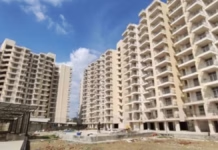Budget 2025 tax relief and infrastructure boost for real estate
The Union Budget 2025, presented by Finance Minister Nirmala Sitharaman, introduces pivotal tax reforms and infrastructure initiatives, marking a significant shift for India’s real estate sector. With a strong emphasis on affordability, urban development, and tax rationalisation, the budget aims to create a dynamic and sustainable housing ecosystem. One of the most notable provisions is the increase in the Tax Deducted at Source (TDS) threshold for rental income, now set at ₹6 lakh annually. This change is expected to ease the financial burden on landlords and tenants alike, providing more liquidity in the rental housing segment. Additionally, the budget extends the time limit for filing updated tax returns from two years to four, reinforcing financial transparency and compliance. However, while these measures bring positive change, industry experts believe more direct interventions—such as stamp duty rationalisation and incentives for rental housing—could have further strengthened real estate investments.
The tax reforms offer substantial relief for homebuyers, particularly the middle class, as the exemption limit has been raised to ₹12 lakh. This increase is expected to improve disposable income levels, enhancing affordability and driving higher homeownership rates. Additionally, the government has introduced a significant boost for home loan borrowers by increasing the tax deduction limit for interest payments from ₹2 lakh to ₹5 lakh. These changes are poised to enhance consumer confidence and accelerate residential sales, particularly in the mid-income and affordable housing segments. According to NAREDCO Maharashtra President Prashant Sharma, while the budget fosters economic growth through tax benefits and liquidity support, it falls short of addressing critical concerns such as liquidity challenges and streamlining project approvals. Despite the launch of an ambitious ₹10,000 crore Fund of Funds to promote PropTech innovation, the industry continues to seek more targeted policy interventions to unlock its full potential.
A major push towards sustainability and infrastructure is evident in the budget’s allocation to urban development and the National Infrastructure Pipeline (NIP). The ₹1 lakh crore Urban Challenge Fund is expected to accelerate urban transformation, focusing on transport connectivity, housing accessibility, and green infrastructure. These investments are crucial for real estate, particularly in emerging metro cities, where infrastructural improvements directly impact property valuations and demand. The emphasis on Public-Private Partnerships (PPPs) further reinforces the government’s vision of sustainable urban expansion. However, experts highlight that while infrastructure investments are critical for long-term growth, the absence of direct policy incentives for real estate developers and homebuyers could slow immediate sectoral growth. As Shraddha Kedia-Agarwal, Director of Transcon Developers, points out, the real estate industry was expecting more structural incentives such as industry status and tax rebates to ease liquidity constraints and drive sector-wide expansion.
While Budget 2025 lays a strong foundation for economic stability and infrastructure-led development, the real estate sector remains at a crossroads. The government’s focus on affordability, tax rationalisation, and urban planning signals a long-term growth strategy, yet stakeholders are calling for more direct policy interventions. The absence of specific relief measures for developers—such as streamlined project approvals, lower GST on construction materials, or financial incentives—means challenges persist in the short term. Sustainable urbanisation remains a key priority, with government initiatives promoting green building technologies, energy efficiency, and climate-conscious urban planning. As the industry navigates these changes, the focus now shifts to mid-year policy updates that could provide further stimulus to drive real estate expansion and sustainability goals.







